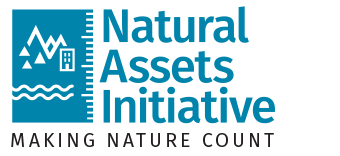FOR IMMEDIATE RELEASE
MNAI Legal Primer Sheds Light on Obligations, Powers of Local Governments to Protect Nature
Primer suggests growing legal justification for protecting nature in a disrupted climate
VICTORIA, BC, February 21, 2023 – With climate change revealing our communities’ true dependence on nature to provide clean water, air, and foundational infrastructure, the Municipal Natural Assets Initiative (MNAI) has published a new, open-source primer to answer the question: what legal responsibilities and powers do local governments have to understand, protect, and manage natural assets involved in providing services?
Legal Primer: Natural Asset Management by Local Governments in Canada, developed by MNAI and environmental lawyer Ian Moore, provides much-needed insight into evolving case law relating to nature, climate change and environmental governance. The primer highlights potential legal issues and liability for local governments, as well as legal tools to help ensure nature and the services it provides are protected.
“All of us have heard of new court cases related to climate change and class action suits related to recent climate emergencies. The primer tries to make sense of the rapidly changing legal landscape,” said Roy Brooke, Executive Director of the Municipal Natural Assets Initiative. “Added clarity around legal authority helps people to understand the risks of undertaking natural asset management … and just as importantly, the risks of not undertaking it.”
Natural asset management — the practice of recognizing, valuing, and managing natural resources that provide key municipal services alongside traditional asset management — is a growing practice being adopted by communities across the country.
Whether or not a community actively manages their natural assets, understanding legal authority and liability to nature as a type of infrastructure is vitally important — but there is little current information that connect nature with legal responsibilities.
The legal primer is national in scope with analysis of four sample provinces (Alberta, British Columbia, New Brunswick, and Ontario) to provide much needed detailed context, and includes:
- Legal authority surrounding natural asset management
- g., of the four provinces sampled, only Ontario has legislative language explicitly addressing natural asset management (O. Reg 588/17)
- However, the lack of comparable legislative requirements in other provinces does not mean a local government cannot undertake natural asset management
- Legal policies and tools
- Legal risks relating to natural asset management
- Legal developments to watch
“There is already a sound business case for natural asset management” said co-author Ian Moore, “this primer demonstrates an increasingly strong legal rationale as well.”
Local governments are struggling to provide for citizens. Canada’s infrastructure deficit is estimated to be between $50 and $570 billion; coupled with climate change and growing populations, this puts additional strain on already crumbling infrastructure, and traditional methods leave little likelihood of the country reaching net-zero GHG emissions by 2050. Natural asset management provides a solution by recognizing what services are being provided by nature to improve decision-making and biodiversity.
It is not enough to just follow Federal and Provincial regulations to manage the environment. Local governments need to understand and pursue strategies and opportunities to protect and benefit from nature in order to fulfill duty to their citizens.
For media inquiries, please contact:
Emily Sharma, Communications & Engagement Advisor
Municipal Natural Assets Initiative
[email protected]
289-527-1927
About MNAI
The Municipal Natural Assets Initiative (MNAI) is a Canadian not-for-profit that is changing the way communities deliver everyday services – increasing the quality and resilience of infrastructure at lower costs and reduced risk. MNAI provides scientific, economic, and municipal expertise to support and guide local governments in identifying, valuing, and accounting for natural assets in their financial planning, asset management programs and develop sustainable, climate-resilient infrastructure.




